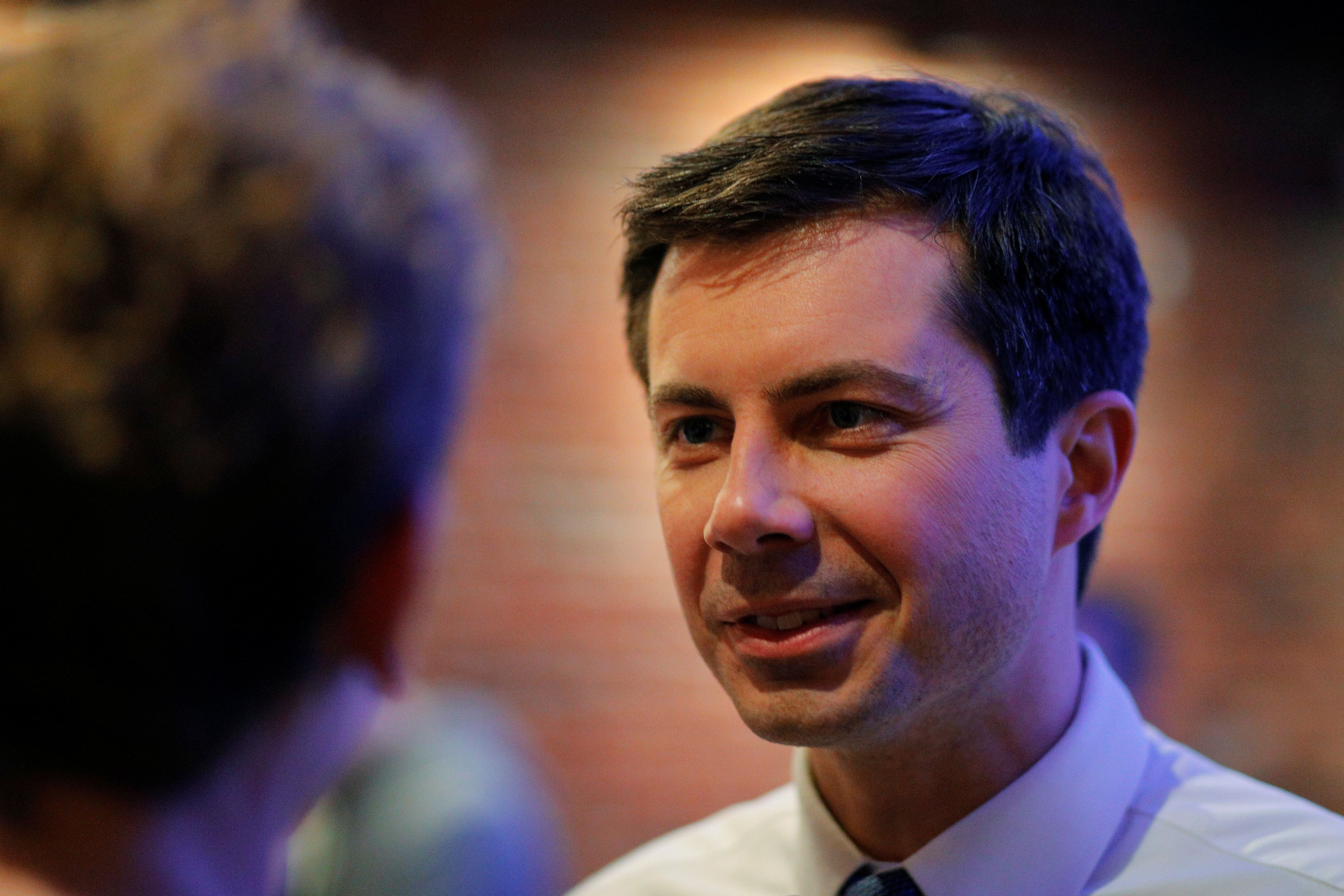March 29, 2019
In the past three years, voters in the United States, France, Italy, Mexico, Brazil, and Pakistan have swept aside familiar candidates to elevate outsiders who promise to upend their countries' politics. As more and more Democrats announce plans to take on Donald Trump in 2020, who might fit the bill as the next American outsider?
Meet Peter Paul Montgomery Buttigieg, the mayor of South Bend, Indiana. Given the difficulties many have in pronouncing his family name—Buttigieg says it's pronounced Boot-edge-edge—supporters have taken to calling him "Mayor Pete."
Can he emerge from an increasingly crowded field of Democratic candidates? Both his poll numbers and the number of people donating to his campaign are on the rise. Last week, CNN called him the "hottest candidate in the 2020 race right now." This week, veteran election analyst Nate Silver profiled what he calls the "Buttigieg bump."
Who is this guy?
Buttigieg holds some positions considered standard for Democrats: He's one of more than 400 US mayors who signed a pact pledging to abide by the rules of the Paris climate accord after Trump pulled the US out of the agreement in 2017. He supports a pathway to citizenship for undocumented immigrants brought to the US illegally as children. He proposes a health care system based on expansion of Medicare—though without eliminating private insurance companies.
He shares a few opinions with Donald Trump: He blames the North American Free Trade Agreement (NAFTA) for job losses in midwestern states and says the US should withdraw troops from Afghanistan.
But they also have important differences: A former Rhodes Scholar who speaks multiple languages, he's as cerebral as Trump is anti-intellectual and as soft-spoken and outwardly modest as Trump is brash and aggressive.
Another difference: He has served in the military. His opinion of the war in Afghanistan is based on seven-months service there as a naval intelligence officer. If elected, he'd be the first US president to have served in any foreign war that began after World War II and the first veteran in the White House since George H. W. Bush left office in January 1993.
But there are also factors that make Mayor Pete a highly unusual presidential candidate:
- He's 37 years old. If he won in 2020, he'd become the youngest person ever to serve as US president.
- His political experience is limited to two terms as mayor of a town of 102,000 people.
- He would be the first openly gay US president.
It'll be months before we learn whether Mayor Pete has staying power, but the attention he's now getting reminds us yet again that voters are drawn to candidates who appear to represent ground-breaking change.
More For You
- YouTube
GZERO World heads to the World Economic Forum in Davos, where Ian Bremmer lookst at how President Trump’s second term is rattling Europe, reshaping both transatlantic relations and the global economy, with Finland’s President Alexander Stubb and the IMF’s Kristalina Georgieva.
Most Popular
Think you know what's going on around the world? Here's your chance to prove it.
- YouTube
How widely is AI actually being used, and where is adoption falling behind? Speaking at the 2026 World Economic Forum in Davos, Brad Smith, Vice Chair and President of Microsoft, outlined how AI adoption can be measured through what he calls a “diffusion index.”
U.S. President Donald Trump holds a bilateral meeting with NATO Secretary General Mark Rutte at the World Economic Forum (WEF) in Davos, Switzerland, January 21, 2026.
REUTERS/Jonathan Ernst
After saying numerous times that he would only accept a deal that puts Greenland under US control, President Donald Trump emerged from his meeting with NATO Secretary General Mark Rutte singing a different tune.
© 2025 GZERO Media. All Rights Reserved | A Eurasia Group media company.
